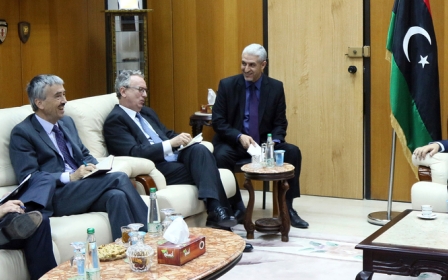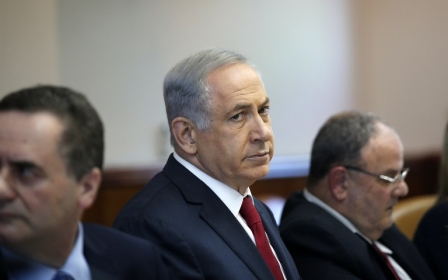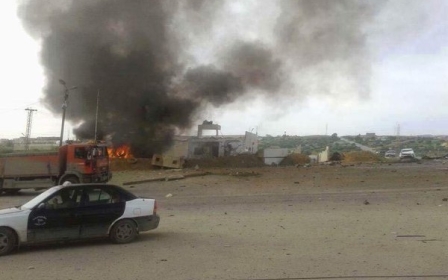Gaddafi 'urged Israel to help stop Nato bombing in final days'

Muammar Gaddafi sought Israeli help to halt Nato air strikes against him in the last days before he was toppled, according to reports from Israel.
The Libyan leader, who had called for the destruction of Israel many times during his 42-year rule, was rebuffed and lost control of the country in August 2011, according to an Israeli army radio report on Wednesday.
The request was mediated through a diplomatic envoy from an unidentfied third state, who travelled to Jerusalem to meet Israeli leaders.
The envoy tried to convince Israel to use its influence with France and the US to stop the air campaign that was targeting Gaddafi’s forces in support of anti-government rebels.
According to the army radio report, Israel quickly decided against taking any action.
Nato began its bombing campaign in Libya in March 2011 in support of the anti-government uprising that began the previous month.
In September 2011, Nato air strikes targeted Gaddafi’s convoy as he attempted to flee – the toppled leader was then killed by a group of rebels on the ground.
During his four decades of rule, Gaddafi had never referred to the state of Israel by name, instead calling it “the Zionist entity”.
The envoy, whose identity was disclosed in the radio report, reportedly warned Israeli leaders that the fall of his government would put both Libya and Europe in danger.
Suggestions in the summer of 2011 that Gaddafi could be about to fall prompted a flurry of diplomatic efforts to ensure safe passage for the leader and his family.
An Israeli woman who had a six-year relationship with Gaddafi's son Saif revealed the next year that she had appealed to Tony Blair - former UK prime minister and Middle East diplomat - to save Saif, saying Blair was one of his high-level contacts.
New MEE newsletter: Jerusalem Dispatch
Sign up to get the latest insights and analysis on Israel-Palestine, alongside Turkey Unpacked and other MEE newsletters
Middle East Eye delivers independent and unrivalled coverage and analysis of the Middle East, North Africa and beyond. To learn more about republishing this content and the associated fees, please fill out this form. More about MEE can be found here.




